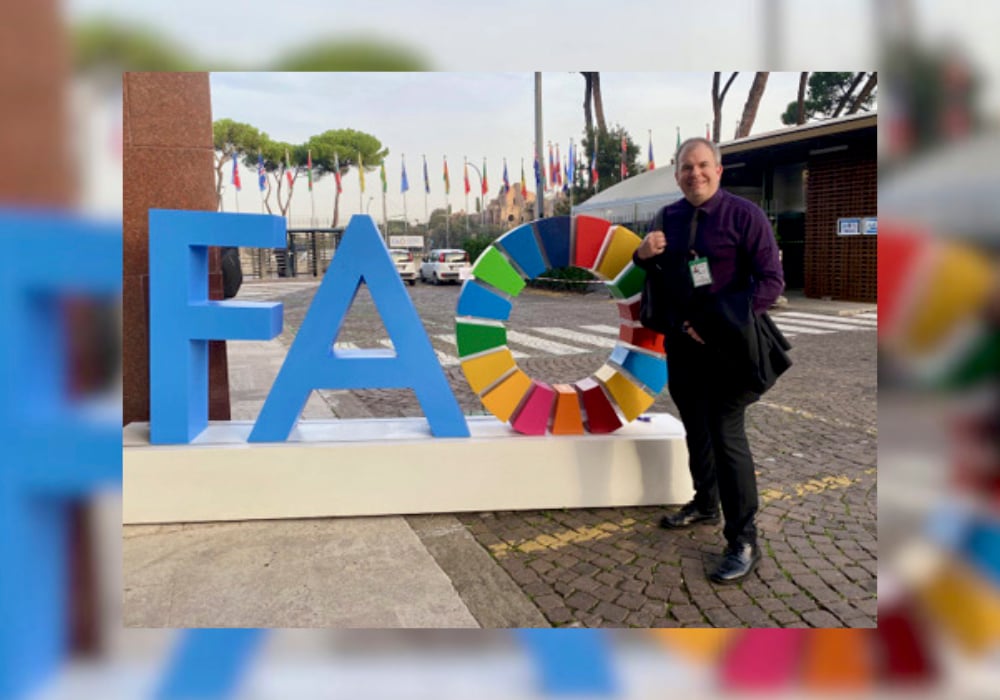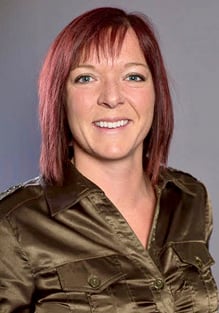What it’s like to attend a UN World Policy Forum on agriculture

The international community regularly convenes to discuss the future of global food and agricultural policy. Whether at the World Food Forum, Committee on Food Security or some related event, agriculture-related policies are frequently made with little input from people directly involved in agriculture.
Read Also


Thornloe Cheese has potential buyer
Gay Lea Foods announced it has entered into a letter of intent to sell Thornloe Cheese to Triple ‘A’ Cheese,…
Efforts to change this are ongoing.
Why it matters: Agricultural policy set at the global level eventually flows into national policies but there are comparatively few voices from agriculture and primary production present at international policy forums.
Through adoption of a private sector mechanism by the United Nations in 2010, individuals from private enterprises across the agri-food value chain are able to attend, engage and provide input for the creation of global policy.
Members of the international Nuffield community have been trying to enable farmers, agribusiness people and others to do just that. Three Nuffield scholars, Emily Ford, Craig Lester and Wayne Dredge, describe what it’s like to attend and contribute at such international events.


photo:
Contributed
Emily Ford, a potato specialist and senior agronomist with Quattro Ventures in Bow Island, Alta., attended the 2023 World Food Forum, at which global food policy is created. It was held at the United Nations Food and Agriculture Organization headquarters in Rome.
Describing it as an opportunity of a lifetime for “a little potato agronomist,” she was struck by how few farmers were inside a building with “agriculture” written on its exterior. She met only a few people like herself during her attendance.
That’s not to say opportunities for good conversation were few, she noted. Quite the opposite.
Technology and production practices were frequent subjects of discussion.
“The stuff they’re talking about, sometimes it’s something we’ve been doing for the long time. Sometimes it was just being able to say ‘we’re already doing that’,” says Ford. “Some of the presentations were on technology, where a lot has been commercially available for years. I think it highlights again people working in agriculture outside of the field need to get into the field.
“To me the focus wasn’t necessarily policy, it was more about engagement … The amount of information that comes out of that building, that does influence stuff on the ground eventually, the fact there were so few producers in the building was alarming.”
The take-away lesson, says Ford, is the importance of getting involved. Whether locally, nationally or internationally, her experience at FAO headquarters showed the need for farmers worldwide to participate in making policy if they want to avoid “being on the menu.”
Trickle-down policy
High-level international events can feel somewhat abstract for those with no participatory experience.
This was the case for Craig Lester, an Alberta-based agriculture multi-media professional, until he attended the 2023 Committee on Food Security, a supplemental event to the World Food Forum.
Lester says he went into the forum “very blind,” not knowing what to expect in terms of its proceedings, methodology or how delegates could participate. What quickly became apparent, though, was the trickle-down effect its adopted policies have on lower levels of political organization.
“What I learned early on is you have things discussed at FAO … that you won’t see at the local, provincial or national level for 10 years,” says Lester, citing carbon and carbon pricing as a past example.
“You just don’t realize how much agriculture and food are discussed at the world level or
in politics in general.
Sometimes you get into the mindset that national policy is set by political interests at the national level, or the provincial level or local level within each country.
“But these discussions going on at the FAO, as I quickly learned, do influence what is going on at the national, provincial and local level. It’s almost like a bit of a cycle in terms of how each ecosystem is playing off one another.”
Another take-away was the length of time it takes for motions to be adopted. Lester says the main sessions where policies are adopted tend to have “a lot of theatre” — that is, head delegates debating policies that have already been in the pipeline for years.
A policy on the importance of gender equality in food security, for example, was adopted while Lester was in attendance. The original draft of that policy was a product of extensive, multi-year engagement.
It’s those discussions — the ones in hallways, small conference rooms and elsewhere — that farmers and agribusiness people must participate in, says Lester.
“The private sector is now at the table. I think that’s a really key step in getting everyone at the table that needs to be there for proper round-table discussion.
“The private sector mechanism was a very interactive experience for me. We weren’t expected to just come and sit and learn. We were asked to ask questions, to participate, to go to certain sessions and report back on what was being said.
“We were kind of the eyes and ears in all these sessions so the private sector could be in all these sessions which were happening simultaneously … It was just a fascinating experience, and one I’m very thankful for.”
Showing up
The connection between internationally adopted policies and what farmers, agribusinesses and food companies have to navigate is also hammered home by Wayne Dredge, a commercial fisherman and 2014 scholar with Nuffield Australia.
Dredge first attended the Committee on Food Security in 2015. While initially apprehensive about his purpose at the event, the revelation that international policies eventually have real impacts on agriculture and food businesses – and that those policies were being driven by delegates who have little knowledge of how primary agricultural systems work – made the importance of his participation clear.
“The private sector mechanism is the only place in the entire United Nations structure that people from farming, agribusiness, agricultural trade, any aspect of agriculture from the private sector, can actually go and contribute towards policy discussions relating to agriculture, food systems and food security,” says Dredge.
Even with this opportunity, however, most private sector delegates come from large international companies.
“Amongst member state delegations, the private sector and civil society, in 2015 I was the only food producer in the entire building. That kind of spooked me a little bit … That was when I sort of took it upon myself to try and get other farmers, fishers, agribusiness people from small and medium enterprises engaged in the private sector mechanism.”
Dredge was a repeat attendee to FAO forums, and has participated in development of many policies and policy discussions. The network of producers and agribusinesses attending the events has also grown significantly, with some 200 individuals from the small to medium enterprise cohort attending various FAO forums.
He says their presence has had real impact, raising awareness that food production comes from small and medium businesses, not just multinational companies, and the creation of policies more reflective of the world’s diverse agricultural systems.
For attendees, participating in multilateral discussions brings new perspectives and knowledge of what future policy might be in their respective countries.
“It provides an early warning system for people … What happens at the multilateral level tends to hit us at a national level three to five years later. Even if you can’t really change the policy that’s occurring, what you can do is, if you’re monitoring it, if you’re aware of what’s coming, your industry, association, board, business, is ahead of it.
“So, when national governments start talking about regulating around biodiversity climate targets, labour rights — whatever it happens to be, you’ve already built a body of evidence that says ‘hey we’re already doing this.’”
Anyone from anywhere in the world is allowed to attend World Food Forum events. All they have to do is register once the registration period opens. Quoting a colleague and mentor, Dredge notes that “the fate of the world is in the hands of people who turn up.”
“It really is as simple as turning up. You have to have a realistic expectation of what you can achieve. You can certainly have an impact, but it takes time.”
Source: Farmtario.com

